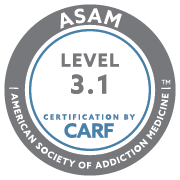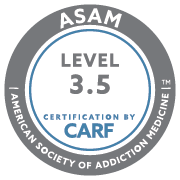
Our CEO Lenette Kosovich was recently featured in the following guest editorial for the Billings Gazette. Lenette serves on the board of the Behavioral Health Alliance of Montana and provided this guest opinion on behalf of the other BHAM board members. We are fortunate to have Lenette leading our team at Rimrock and appreciate the active role she takes in our state advocating for those in need.
Gazette opinion: Fixing Montana’s tattered safety net
Two years ago, Montana balanced its budget in part by slashing funding for mental health care and addiction treatment. It was a desperate and short-sighted reaction to the revenue shortfall that became painfully obvious soon after the 2017 Legislature adjourned.
For every dollar, Montana’s general fund “saved” on behavioral health services, community care providers lost at least $3 because our sta
te pays between 10% and 35% of Medicaid costs with the federal government picking up the rest. Counselors, clinics and hospitals lost both the state money and the federal match, which added up to millions of dollars.
The need for behavioral health care kept growing with meth, opioids and other drugs fueling addiction epidemics. Medicaid rule changes made during the cost-cutting frenzy remain as obstacles to covering costs of providing addiction treatment.
The tattered safety net isn’t repaired yet, but mental health professionals tell The Gazette that they are hopeful of improvement this summer. The first good news for Montana health care is the extension of Medicaid expansion, which is a major funder of mental health care and the primary payer for addiction treatment.
The state budget includes a $1.5 million boost in state funding for substance abuse treatment and $3.5 million for targeted case management, according to Mary Windecker, executive director for the Behavioral Health Alliance of Montana.
“The Legislature was pretty helpful to us,” said Barbara Mettler, executive director for the South Central Montana Mental Health Center. “I think they understood how dire it is.”
The Mental Health Center headquartered in Billings reduced staff by 30 jobs over the past two years. Most of the reduction was the state-forced elimination of targeted case management, a relatively low-cost service that helped seriously mentally ill clients stay safe and healthier in the community — and out of the hospital.
Addiction treatment
Journey Recovery, the MHC’s addiction treatment service, has seen losses of $30,000 a month and downsized staff. Montana Medicaid rule changes in 2017 are incompatible with the best practices in addiction treatment, said Mettler. For example, the new rules cut payment for group therapy while raising it slightly for individual therapy although the best practice for addiction treatment is group therapy.
Also in Billings, Rimrock had to reduce the number of clients served in intensive outpatient treatment because the private, nonprofit o
rganization couldn’t afford to maintain service volume with reimbursement significantly reduced, according to Lenette Kosovich, chief executive officer. Waiting times got longer for people to get into the program.
Legislative action this year will barely restore Medicaid addiction treatment rates to the level paid in 2016-15, Kosovich said.
Mettler, Kosovich and Windecker are hopeful that the situation will improve this summer. The Behavioral Health Alliance of Montana has been working with the state Addictive and Mental Disorders Division to revise the rules so treatment will be available to more Montanans who need it and payment will sustain providers.
DPHHS must act
The Montana Department of Public Health and Human Services has proposed to revise addiction treatment rules effective July 1 and will have a public hearing on its proposal on June 13 in Helena.
A notice of proposed changes in target case management will be out in the “very near future,” a DPHHS spokesman said Friday.
“I’m encouraged that we are finally working together,” Kosovich said. “I’m feeling hopeful for the first time in a long time.” said Kosovich, who is BHAM president-elect. She is pleased with the unified voice of the provider alliance. Zoe Bernard, chief of the Addictive and Mental Disorders Division, has been attending alliance meetings in Helena.
Seriously ill Montanans have been without services for a year and a half due to state budget cutbacks and rule changes. We call on Bullock and DPHHS Director Sheila Hogan to make safety net repair a priority early this summer.






